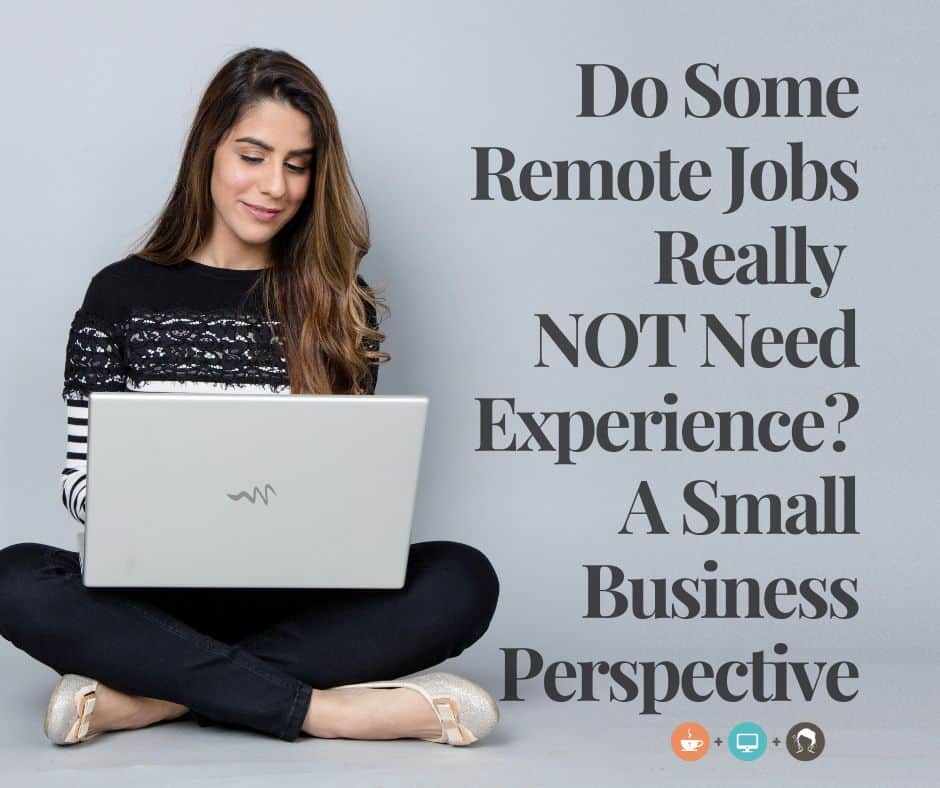
Do Some Remote Jobs Really Not Need Experience? A Small Business Perspective
Remote work makes jobs far more accessible to everyone. This has created an uptick in companies receiving an overwhelming amount of applications for open positions — because this process is so easy, some applicants submit their information just because the position sounds interesting, not necessarily because they have the experience. Which begs the question, do all remote jobs need previous experience? The answer is…no! So then, what are some positions for which you can hire within your company that do not require experience from candidates?
Types of Remote Jobs That Often Require No Experience
Virtual assistants are notably in demand, as they handle administrative tasks that can be easily guided and supervised online. They can schedule appointments, take meeting notes, and even help manage projects. While experience with certain software is a plus, this is something for which you can easily train a candidate and mold them to your company’s needs.
Similarly, data entry specialists offer a gateway into the digital workplace, focusing on inputting, updating, and maintaining information in computer systems — a role that often requires precision rather than experience. What you really need is just someone who has attention to detail and knows their way around your chosen software such as Excel.
The rise of social media as a crucial business tool has also led to opportunities for remote social media managers. While familiarity with social platforms is essential, this role often values creativity and engagement strategies over traditional work history. It is easy to train employees on programs such as Canva or Hootsuite to create and subsequently schedule eye-catching social posts.
Lastly, customer service representatives occupy a vital space in remote work ecosystems, providing support and assistance to clients through various communication channels. This role primarily seeks individuals with strong interpersonal skills and a patient demeanor, aspects that can be innate or developed outside of a professional setting.
The Skills That Matter More Than Experience
What should you look for in candidates that do not have previous work experience? Proficiency in digital communication platforms is extremely important, as remote teams rely heavily on email, chat, and video conferencing tools to collaborate and stay connected. This includes not just familiarity with the technology but the ability to convey messages clearly and effectively in a virtual environment. Critical thinking and adaptability are also highly valued, as remote workers frequently encounter varying challenges and must navigate them independently. The capacity to analyze situations, brainstorm solutions, and pivot strategies when necessary is essential for success outside a traditional office setting.
Equally important is an individual’s self-discipline and initiative. Remote jobs require a degree of self-motivation and the ability to complete tasks without direct supervision, which can be a significant adjustment for those accustomed to in-person oversight. Organizational skills and the ability to manage one’s schedule are paramount to ensure productivity and meet deadlines in the absence of a structured office environment.
How Small Businesses Can Benefit From Hiring Less Experienced Remote Workers
Those without work experience in the field for which you are hiring often come with a high level of enthusiasm and a willingness to learn, which can be leveraged to inject innovation and a dynamic work ethic into the business. This influx of fresh perspectives can be especially crucial for small businesses looking to differentiate themselves in competitive markets. Moreover, employees new to the workforce tend to be highly adaptable and open to embracing the company’s culture, tools, and processes, which can lead to a more harmonious and flexible team dynamic.
Additionally, smaller businesses, often operating with limited budgets, can offer lower starting salaries to these workers, which helps manage payroll expenses while still attracting talented individuals eager to prove themselves. As the candidate grows into their position and increases company performance, their salaries can grow as their knowledge does. This approach also enables small businesses to shape these employees according to specific organizational needs and values without the need to unlearn habits or approaches acquired from previous employers.
Have you hired people who have no direct industry experience but bring certain skills to the table? We would love to hear about your experience and what tips you have for other businesses looking to do the same.
